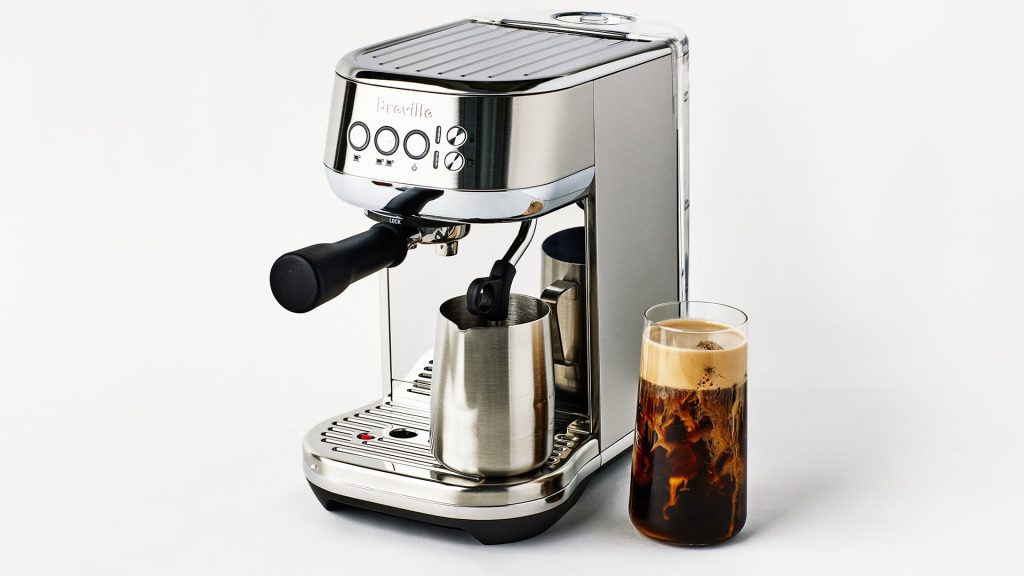Sharing is caring!
When it comes to buying a home espresso machine, there are a multitude of options to choose from. With so many different machines on the market, it can be overwhelming to make a decision. That’s why it’s crucial to find reliable reviews and advice to help guide you in the right direction. In this article, we will discuss the top ten things you should consider when buying a home espresso machine. From PID temperature control to pump pressure, filter basket size to built-in filtration systems, we’ll cover all the important factors that can make or break your espresso experience. So, let’s take a closer look at these key considerations and help you find the perfect espresso machine for your brewing needs.
1. PID Temperature Control
When it comes to brewing the perfect espresso, temperature control is crucial. That’s where PID temperature control comes in. PID stands for Proportional-Integral-Derivative, which is a fancy term for a technology that allows for precise temperature regulation in espresso machines. By constantly monitoring and adjusting the temperature, PID control ensures that the water remains at the ideal temperature for extracting the best flavors from the coffee grounds.
In the past, PID temperature control was a feature found only in high-end, expensive espresso machines. However, advancements in technology have made it more accessible. Nowadays, you can find espresso machines with PID temperature control at various price points, making it easier for coffee enthusiasts to achieve professional-level results at home.
With PID temperature control, you no longer have to worry about temperature fluctuations affecting the taste of your espresso. Whether you prefer a lighter or darker roast, you can now achieve consistent extraction and enjoy a perfectly balanced cup of coffee every time.
2. Pump Pressure
When it comes to making espresso, pump pressure plays a significant role in the extraction process. The industry standard for pump pressure in espresso machines is typically around 9 BAR (or 9 times atmospheric pressure). It is important to note that exceeding this pressure doesn’t necessarily result in better quality espresso.
Quality espresso depends on a combination of factors, including the grind size, the amount of coffee used, and the extraction time. Pump pressure is just one piece of the puzzle. While it is true that some commercial espresso machines use higher pump pressures, the difference in taste is often negligible.
By sticking to the recommended pump pressure of 9 BAR, you can ensure that your espresso is extracted properly without compromising on taste. So, the next time you’re eyeing that espresso machine with an excessively high pump pressure, remember that quality espresso isn’t necessarily reliant on exceeding the industry standard.
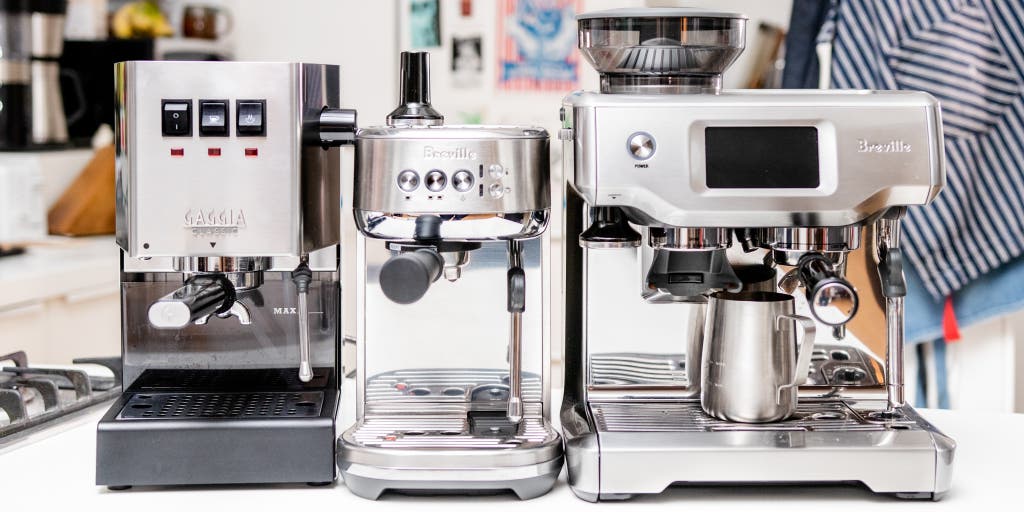
3. Three-way Pressure Relief
Have you ever experienced the frustration of hot coffee grounds spraying everywhere when removing the portafilter from your espresso machine? If so, you’ll appreciate the importance of a three-way pressure relief system.
A three-way pressure relief system is designed to release the built-up pressure in the espresso machine’s group head when the portafilter is removed. By doing so, it prevents any remaining water and coffee grounds from being forcefully expelled, eliminating the mess and potential burn hazard.
This feature may seem minor, but it’s one of those small details that can make a big difference in your espresso-making experience. So, the next time you’re shopping for an espresso machine, make sure to check if it comes with a three-way pressure relief system. Your countertops and fingers will thank you!
4. Filter Basket Size
If you want to achieve the perfect extraction when brewing espresso, filter basket size is a critical factor to consider. The filter basket is where you place the coffee grounds, and its size directly affects the amount of brewing water that comes into contact with the coffee.
The preferred filter basket size among coffee enthusiasts is 58mm. This size allows for optimal distribution of brewing water, ensuring even saturation and extraction of the coffee grounds. A larger filter basket can lead to uneven extraction, resulting in a less balanced and flavorful espresso.
The filter basket size is not something to overlook when purchasing an espresso machine. Make sure to choose a machine that comes with a 58mm filter basket for the best results. Your taste buds will thank you!
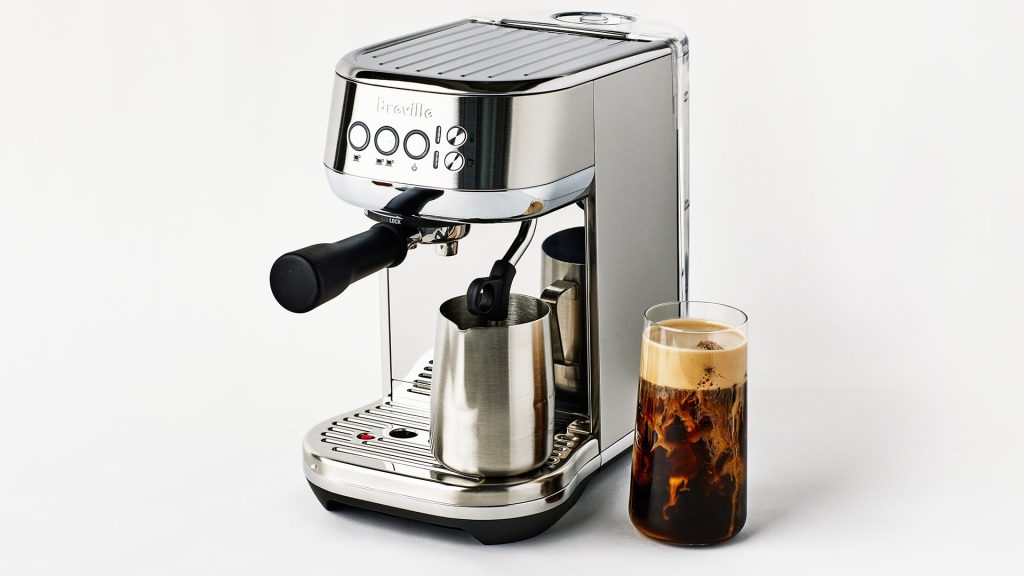
5. Built-in Filtration System
Water quality plays a significant role in the taste of your coffee. In areas with poor water quality, such as high mineral content or chlorine levels, using tap water directly in your espresso machine can negatively impact the flavor. That’s where a built-in filtration system can make a difference.
A built-in filtration system in an espresso machine helps improve the coffee’s quality by removing impurities from the water before it reaches the coffee grounds. This results in a cleaner, purer taste that allows the flavors of the coffee to shine through.
If you live in an area with poor water quality, investing in an espresso machine with a built-in filtration system is highly recommended. It can make a significant difference in the taste and overall enjoyment of your espresso. Say goodbye to off-flavors and hello to a delicious cup of coffee every time.
6. Dual Boiler for Milk-based Drinks
Are you a fan of milk-based drinks like lattes, cappuccinos, and macchiatos? If so, a dual boiler espresso machine might be the perfect choice for you.
A dual boiler espresso machine features separate boilers for brewing and steaming. This means that you can adjust and maintain different temperatures for each boiler, allowing for precise control over the brewing and steaming processes.
With a single boiler machine, you would need to wait for the temperature to change between brewing and steaming, which can be time-consuming and result in inconsistent performance. A dual boiler machine eliminates this issue, providing you with the convenience of brewing and steaming simultaneously.
Whether you’re a home barista or an aspiring coffee connoisseur, the ability to make milk-based drinks with ease can greatly enhance your espresso experience. Consider a dual boiler espresso machine to take your coffee creations to the next level.
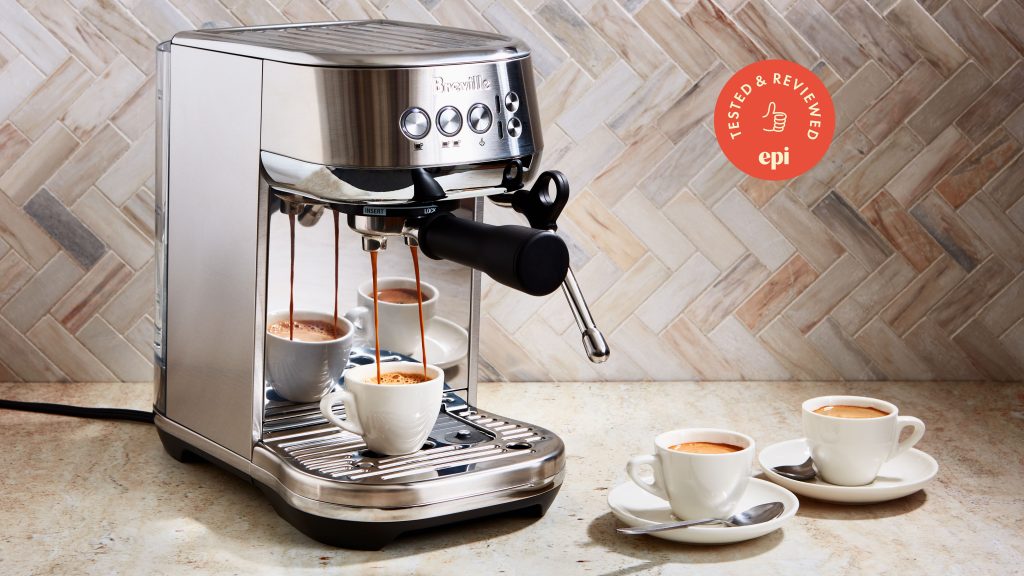
7. Unpowered Espresso Options
While electric espresso machines are undoubtedly convenient, there is a certain charm and artistry to manual lever machines. These unpowered options offer a unique coffee-making experience and deliver high-quality results.
Manual lever machines require some effort on your part to build up the pressure needed for extraction. By pulling down on a lever, you engage the piston, which forces water through the coffee grounds. This hands-on approach allows for a more personalized brewing process, giving you the opportunity to experiment and fine-tune your extraction.
If you’re a true coffee aficionado who enjoys the process of making espresso and Americanos, a manual lever machine might be the perfect addition to your kitchen. Not only do they produce exceptional results, but they also offer a sense of nostalgia and craftsmanship.
Remember, making espresso should be a delightful experience, and manual lever machines can offer just that.
8. Serviceability
When investing in an espresso machine, it’s important to consider its long-term use and maintenance. Machines that are easily repairable can save you both time and money in the future.
Espresso machines, like any other appliance, can encounter issues over time. From minor leaks to more complex technical problems, having the ability to service and repair your machine can prevent the need for costly replacements.
Before making a purchase, research the brand and model you’re considering. Look for machines with easily accessible parts and a reputation for reliability. Additionally, check if there are authorized service centers nearby or online resources where you can find troubleshooting guides and spare parts.
By choosing a machine with good serviceability, you’re making a smart investment that will continue to deliver delicious cups of espresso for years to come.
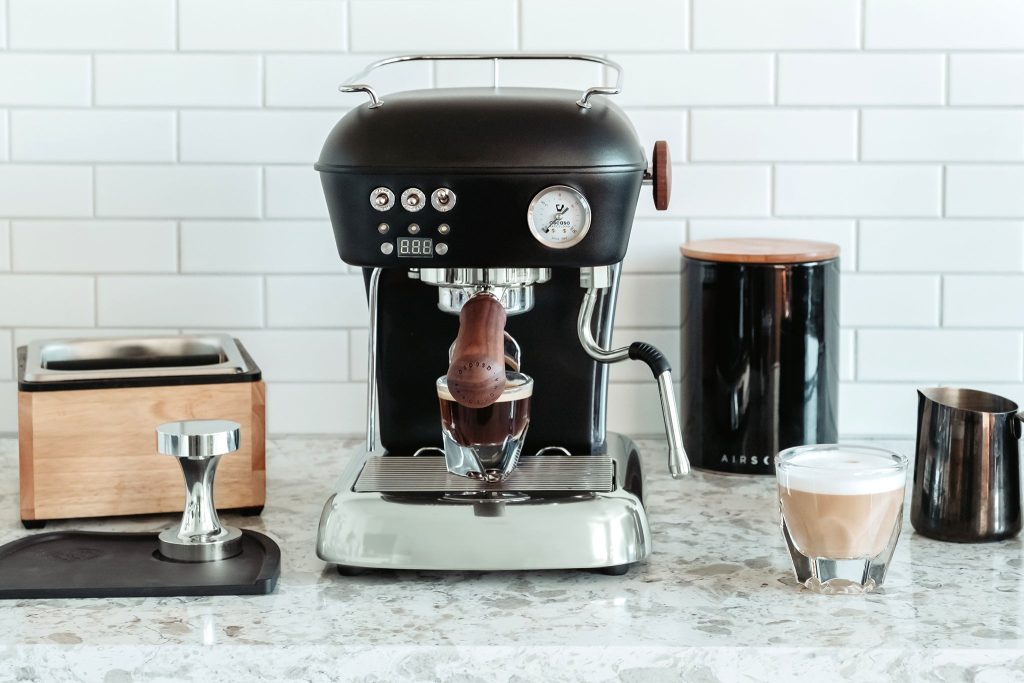
9. Resale Value
In the world of espresso enthusiasts, upgrading to a new machine is a common occurrence. As you dive deeper into the world of coffee and refine your preferences, you may find yourself wanting to explore more advanced features and capabilities.
That’s why considering the resale value of your espresso machine is important. A machine that holds its value well will make it easier for you to sell or trade it when the time comes to upgrade. This is especially relevant in the espresso enthusiast community, where many people are constantly on the lookout for the next best machine.
Factors that contribute to good resale value include brand reputation, build quality, and overall performance. So, when you’re choosing an espresso machine, think not only about your current needs but also about how it will hold its value in the future.
10. Importance of a Good Grinder
The importance of a good grinder in the espresso-making process cannot be overstated. A consistent, fine grind is critical for achieving a balanced extraction, which is the cornerstone of a great espresso. Unlike regular coffee brewing methods that are more forgiving of grind size and consistency, espresso is an exacting art that requires precision. An uneven grind can result in “channeling,” where the water flows unevenly through the coffee grounds, leading to a shot that is both under-extracted and over-extracted at the same time—resulting in bitter, sour, and generally unpleasant flavors. A high-quality grinder ensures that you get an even, consistent grind every time, allowing you to pull shots that are full of flavor, rich, and robust. In fact, many coffee experts argue that a good grinder is even more important than the espresso machine itself when it comes to influencing the quality of your espresso.
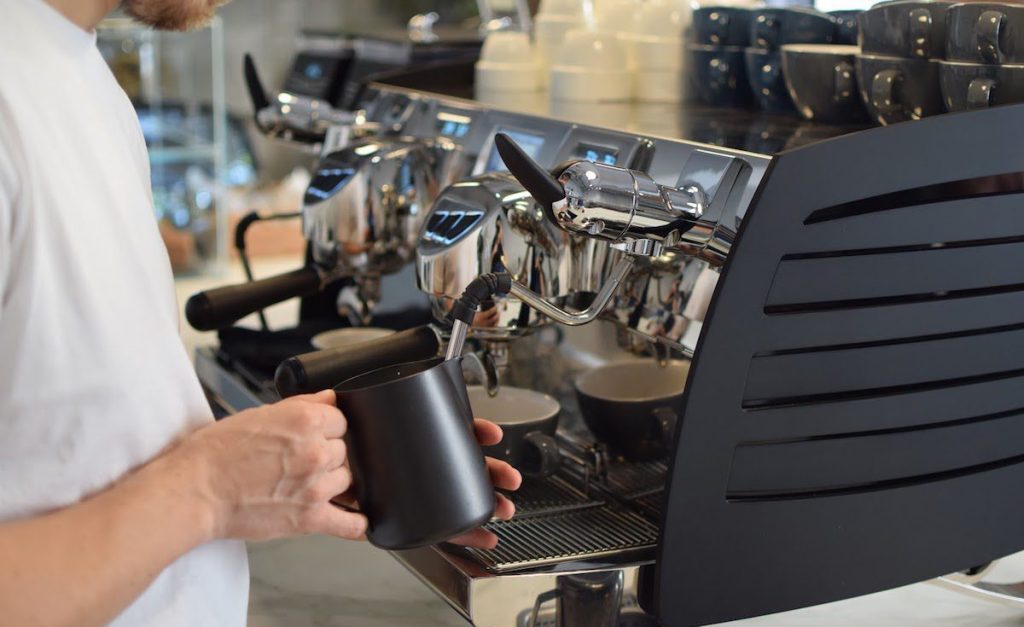

Hey, I’m Eric, your go-to guy at Eric’s Gadget Reviews. This is my little slice of the web where I spill the beans on all sorts of gadgets, yard tools, and anything that catches my eye (and hopefully yours too).
Sharing is caring!


